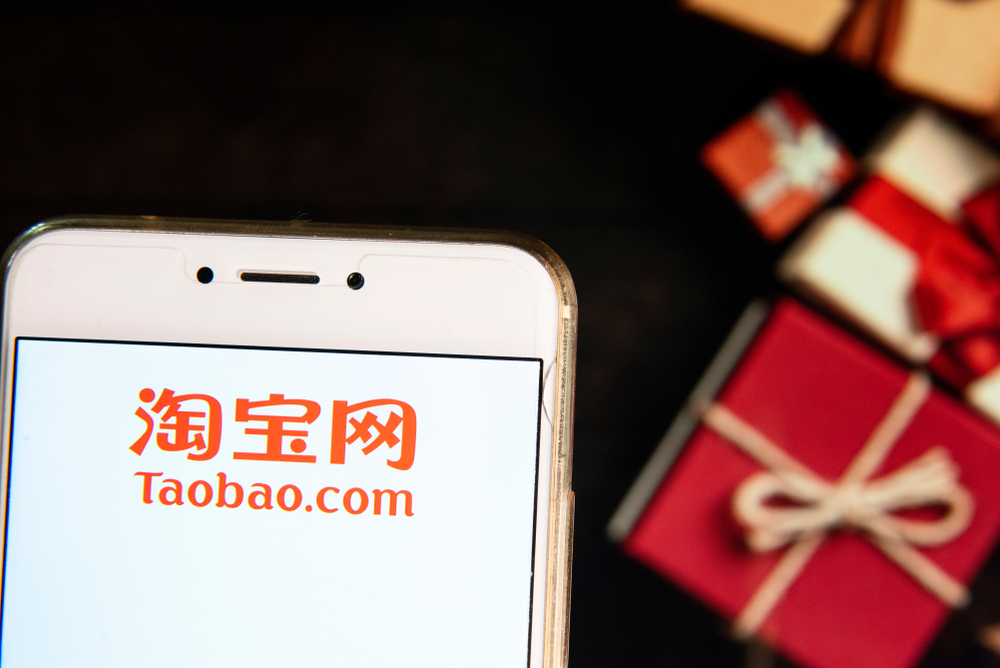The education industry is no stranger to Alibaba (NYSE: BABA). Its founder, Jack Ma, started out as a teacher, and when he announced his retirement as chairman of Alibaba’s board of directors in 2019, he also mentioned that he would return to the education field.
The advent of the COVID-19 pandemic resulted in a boost for the online education industry, and in March 2020, Alibaba formally established its Taobao Education division. According to Huang Lei, director at Taobao Education, the division’s goal is not to build an education and training industry chain from scratch, but to reorganize the demand and supply for knowledge based on Taobao’s consumers base composed of over 800 million users.
Tech portal 36Kr held an interview with Huang to know more about Taobao Education’s positioning, goals, and its business strategy going ahead.
A complete ecosystem
According to Huang, Taobao Education’s entry point in the industry revolves around building a platform to sell online courses. “We aim to provide a complete ecosystem for all businesses. We are not jumping in to produce socks and pants by ourselves,” explains Huang.
“We hope to provide classroom solutions for different types of education and training institutions, self-operating tools, and student bodies. Our customer relationship management (CRM) makes our entire ecosystem more complete as well,” he said.
Huang also explained that, unlike competitors such as ByteDance and Baidu (NASDAQ: BIDU), Taobao Education has no plans to self-develop education products.
In light of its aim to build an education ecosystem, Taobao Education is rolling out a full suite of tools to help merchants. One tool supported by Taobao is Qingketang, which is currently still in the testing stage. It is envisioned to be a mini-program that offers access to myriad online courses delivered by education providers.
“We want to launch Qingketang. This will help education and training institutions, knowledge-based merchants, and goods-based merchants to publish courses using Qingketang’s back-end tools. On the consumer side, users can make payment for knowledge-based products directly through their mobile Taobao and receive courses online.”
Read more: Studious shoppers can now find online classes on Alibaba’s Taobao
Taobao as a source of conversions
When probed about the number of courses currently available within Taobao Education’s mini-program on the Taobao app, Huang admitted that there is still room to improve. “There are currently about 3 million education-related courses on Taobao’s platform, but not all these courses have been transferred to the (Taobao Education) mini-program.”
However, Huang is optimistic about Taobao Education becoming a serious contender in the light of strong demand following COVID-19.
“Between January and May 2020, we saw the number of users searching for educational products on our platform doubling. During this period, we also saw around 5,000 educational institutions spontaneously enter our platform as well, which is equivalent to around 1,000 new entrants a month. Therefore, I see a new relationship between supply and demand that can help us build Taobao Education.”

Rather than seeing Taobao Education as a tool purely sustained by new traffic, Huang wants to leverage Taobao’s existing consumer base to promote Taobao Education.
“During the 618 periods, we actually did not carry out active Taobao Education operations, but the overall data and results for conversions were very good,” suggested Huang, referring to China’s June online summer sales period, popularly known as 618.
“In fact, we are not talking about a new business to generate traffic for Taobao, nor are we talking about harvesting outside traffic generated due to the epidemic. New traffic for Taobao Education actually comes from the demand for new knowledge from our existing 800 million users.”
By capitalizing on Alibaba’s immense data gathering capabilities and ecosystem, Taobao Education wants to use Taobao’s search recommendation systems to catalyze further transactions.
“We will use a “waterfall model”, starting from the recommendations section on (each user’s) Taobao homepage, and include more education-related tags to this feature. Taobao’s knowledge-related supply chain will become more evident to our users. We will then link this to merchants and categories of actual goods themselves.”
Platform over product
Platforms primarily rely on front-end traffic and flow to sustain themselves. In contrast, the education industry has relatively weightier back-end requirements for success. For instance, sub-standard products are common in the education industry, while after-sales services and service chains are crucial. Skeptics might, therefore, view that utilizing a platform model to service the education industry as infeasible.
Huang is keen to dissent. “I look at it this way. The average marketing cost for the entire education industry is about 30 to 40%, implying that almost all profit margins are used to generate enrolments. This means that the financial resources used for (hiring) teachers and the research and development of courses are insufficient because everyone is vying for students. There is no time to prepare a good in-house supply chain or solution.”
“If our platform can first solve the problem of (generating) new enrolment for these educational institutions, they can then focus their attention on the standardization and development of their courses. This helps them release their creative ability. However, I do not assume that the industry will always be like this, and I know that standardization may not be possible, while the delivery may not be continuous,” said Huang.
“Secondly, we will also establish strict rules. Today, Alibaba relies on Tmall and Taobao, which has very strict business operating standards that will be applied for Taobao Education as well.”

When asked about the issue of merchants and potential consumers going off-platform to transact deals, Huang was pragmatic.
“The risk of orders running away is high, especially for educational institutions with their own apps, office buildings, websites, or WeChat groups. However, a single merchant who runs away with orders means that he completely withdraws from our entire education ecosystem, which consists of 800 million Taobao consumers and 960 million internet users,” he said.
“Taobao Education is not a platform that aims to trade in traffic. We do not fight price wars or carry out group-buying like some other platforms. What we guarantee is trust and brand in exchange for (each merchant’s) traffic,” Huang added.
Neither late nor unprepared
Before the COVID-19 pandemic, however, many of China’s major internet giants had begun to delve deep or specialize in education products. Taobao Education’s venture into the field may, therefore, seem rather late and low-key in comparison.
Huang, however, sees education as an industry where Taobao has always had a foothold. “I don’t think that Taobao is late to the education industry. In fact, those chasing this trend in the future will be trying to catch up with us. Alibaba’s ecosystem has always had education genes in it. This is not a new business that has been newly implanted.”
Taobao is renowned for selling cost-effective products, as well as for generous promotions and discounts available on its main platform. Despite this seeming like a key driver behind Taobao’s sales logic, Huang highlighted merchant autonomy in deciding prices for services on Taobao Education.
“Sales strategy depends on each merchant’s own operating strategy. We are not only dealing with “long-tail” courses, namely, low-cost, low-threshold courses that hope to establish a relatively low threshold for admissions. Some merchants are more concerned with providing quality courses,” explained Huang.
“The entire fee for some quality courses, such as postgraduate and professional certification courses with fixed requirements, maybe over 10, 000 RMB (1,432 USD).”

As previously mentioned, Taobao Education will not generate its own educational courses, at least for the time being. However, Huang does not view this as shying away from content-based offerings.
“Everyone is creating content. Our competitors want to create the ‘content of the show’, but for Taobao, content comes from providing information about sellers and features such as shopping guides and consumers sharing their purchases,” Huang suggested.
Compared to other internet giants such as Baidu and ByteDance, Alibaba has another edge in its shift to educational products.
“For Baidu and ByteDance, they need to convert from free to paid models. Their “show” model needs to shift from supplying free to paid content. In contrast, Taobao is moving from supplying paid goods to paid knowledge. Both types of business models will require a small step to transform our supply chains, but this shift will be easier for Taobao.”
Alibaba is betting big on this field
Taobao Education reports directly to Jiang Fan, the president of Taobao Tmall. According to Huang, the fundamental logic of this decision is to serve as a centralizing node for Alibaba’s various education-related operations.
“There are actually many education-related scenarios across our entire group, including Alipay, DingTalk, and Taobao, for example,” explains Huang. ‘The group hopes to use the Taobao Education department to sort out its scattered resources internally. Further integration will make it easier for its education and training businesses to stabilize and operate.”

Reporting directly to Jiang Fan is also consistent with Taobao Education’s focus on its platform and operations, rather than developing courses through research and development, according to Huang. Having such an organizational structure also assists Taobao Education with mobilizing resources across Alibaba’s entire ecosystem, by opening up links between purchases of physical products and knowledge products.
Rather than focusing on monetizing Taobao Education per se, Huang seems to view the division as a complementary tool to the Alibaba ecosystem.
“I don’t think that Taobao Education has the goal of monetization. Firstly, the education and knowledge vertical is one that has very strong horizontal and cross-category potential. It is not decisively separated from other categories, so this vertical can better connect with our already very complete set of Taobao and Tmall products.”
“Secondly, knowledge is very immersive and promotes continuous learning, which can better enhance the stickiness of consumers on Taobao. Thirdly, having knowledge-related categories on Taobao can increase user activity.”
Taobao Education is serious about its gameplan going ahead. “This is the first time that I am revealing that there are already 210 colleagues in our division,” said Huang, adding that “the size of this team exceeds any other category”, with most employees coming from the Taobao University team, which has been around for the past 14 years.
“We are prepared to fight a big battle,” Huang said.
The original interview was carried out by Peng Qian for 36Kr. The interview was translated and adapted for this article by Lin Lingyi.


